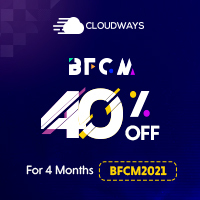Disclaimer: Magenticians does not necessarily agree with the views expressed in this guest post. They are presented to bring to light all diverse views in the Magento and general ecommerce community.
If you think SEO is an easy job and can be handled by an inexperienced person, well, you’re wrong!
Working on the optimization of a page or confirming orders on an online shopping site is a lengthy and hectic process. It does not have a stopping point; rather the process is ever-going which does not end.
As a matter of fact, there are many people who share various misconceptions about SEO and I am sure many readers might be able to relate to at least one point.
So let’s discuss 10 most common misconceptions and myths about Ecommerce SEO:
1. Pay Per Click Doesn’t Help SEO
Usually, Pay Per Click is a system where one can buy ads through Google or Bing, which helps increase the number of audiences visiting your page. This will help in more exposure and market your product or service to a larger audience. So with the help of PPC, you can attract targeted audience on digital media.
2. Your Aim is to Rank Higher
While SEO does help improve rankings, the ultimate aim is to earn money out of it. Every SEO segment and tool aims to rank your link or the page higher on the first page, which exposes your products to a huge audience which translates to higher profit for the business. Consider the example of a Magento Development Company: we offer the best services in order to help our clients, and if we rank higher, that means more clients and more profits!
3. SEO is Cheap and Easy
SEO, in fact, is a long procedure which does not end, as stated earlier. It’s basically an ongoing process where websites compete with each other with marketing strategies at their helm. Since it doesn’t end, one cannot say SEO is cheap or easy.
4. Algorithms Drive the Practice of SEO
Again, not really. The tools and methods of SEO are basically analyzed in a manner that it stays on top of every algorithm which helps in predicting changes even before they arrive in the current issues and trends in the online market. Algorithms help in refining the pages which are created and modified with SEO tools.
5. SEO Works Everytime
SEO is a tool that helps in improving your online business’s presence. But if the business model or the product of a company is poor itself, you cannot expect SEO tools to do wonders for you! If the product has gone through substandard marketing, it’s difficult to uplift the quality by SEO methods and tools.
6. Low Prices Will Attract More Customers
If only it were that simple. Buying a product online is dependent on the availability of the product, brand information, inventory control, reviews, and quality of customer service apart from pricing. So even if you launch a product online that doesn’t cost a lot, there is no guarantee that it will sell like hot cakes.
7. All Ecommerce Platforms Are Equal
All ecommerce platforms are not the same, and different products and services need different experiences. If you buy a pen online and the quality isn’t that great, you can still breathe in peace. But if you buy a furniture worth a lot of money, you don’t just order, you want to see how it is and how it feels before buying. Some ecommerce platforms have advanced enough to let you do that, though. Hence, not all platforms are equal.
8. Managing an Online Store is Easy
Everyone would be doing it if it were that easy. When you have a physical outlet, at least you know how many people are physically present. But online shopping is a platform where millions of customers may visit at a single time, and solving their queries can be a nightmare. And when the order is confirmed, you need to locate your vendors for information on delivery. When the audience is huge, management is difficult on the same level.
9. Product Descriptions are Easy to Implement
Product descriptions and details can be difficult if there are many products. When there are too many products on the site, it becomes really challenging to manage them. Marketing a product online doesn’t only need information about the product, but in fact, requires pictures and other information as well. It’s not an easy task when there are thousands of products to deal with.
10. Language is Not a Problem
Language is a huge problem. For example, if you don’t understand Spanish and an online store is only available in that language, will you be able to shop? Of course not! Information on the type of fabric, size, delivery, payment methods is all necessary, so ultimately you won’t shop from that link at all!
Conclusion
Well, I hope that some of your confusion is sorted now! SEO is fun, but only when you are passionate about it. Ecommerce is a revolution in how we shop, but it’s necessary that you know the ins and outs of it to take advantage of it. Enjoy optimizing your stores, but keep these misconceptions in mind so you don’t fall for them!
Author Bio
Ronak Meghani is the award winner CEO and co-founder of Magneto IT Solutions – a web and Magento development company. He is keenly interested in writing technical blogs pertaining to WordPress and laravel app development. During his spare time, he likes to keep up with the latest technology trends on the World Wide Web.

